20+ Years Experience
Specialist Education Providers

Special needs garden play equipment is designed to provide inclusive and engaging play opportunities for children with diverse abilities.
These specialised play structures are carefully crafted to cater to the unique needs of children with physical, sensory, or cognitive challenges, allowing them to experience the joy and benefits of outdoor play in a safe and supportive environment.
In this comprehensive guide, we will explore the various types of special needs garden play equipment, the benefits they offer to children, and important considerations to keep in mind when choosing and customising these play structures.
Whether you are a parent, caregiver, or educator, understanding the significance of special needs garden play equipment and how it can positively impact children’s development is crucial.
Special needs garden play equipment refers to specially designed and constructed outdoor play structures and features that cater to the diverse sensory and physical requirements of children with special educational needs and disabilities (SEND), including those with Autism spectrum disorder, ADHD, and physical disabilities.
These specialised play structures aim to provide a safe and inclusive environment for children of all abilities, fostering social interaction, physical activity, and cognitive development.
Adaptive swings, sensory pathways, and wheelchair accessible platforms are key elements incorporated into the design, offering a range of sensory experiences and promoting motor skills development.
The integration of therapeutic gardens and specialised educational guidelines ensures that the equipment not only entertains but also supports the overall well-being and growth of children with special needs.
Special needs garden play equipment offers a myriad of benefits for children, facilitating their physical, cognitive, and emotional development whilst fostering inclusive social interactions and sensory exploration.
Playing in specially designed sensory-rich areas with sensory panels and interactive water features can positively impact the overall well-being of children with diverse needs. These unique play spaces provide calming spaces where children can engage in therapeutic interventions, helping them to regulate their emotions and develop essential sensory processing skills.
Specialised educational resources incorporated into the play equipment offer opportunities for learning and skill development in a fun, accessible environment, catering to the specific requirements of each child.
Special needs garden play equipment encourages physical activity by providing access to adaptive swings, wheelchair accessible platforms, interactive water features, and therapeutic gardens, creating a safe and stimulating environment for children to engage in active play.
In particular, the utilisation of BSEN standards ensures that the adaptive swings and wheelchair accessible platforms are designed and manufactured to meet the specific needs of children with disabilities.
The incorporation of compliant safety surfacing, such as bonded rubber surfacing, provides a protective and inclusive play environment, reducing the risk of injuries and facilitating freedom of movement for all children.
Inclusive play structures offer varied sensory experiences and opportunities for social interaction, supporting not only physical development but also cognitive and emotional growth.
The engagement with special needs garden play equipment promotes the enhancement of motor skills, coordination, and muscle strength, contributing to overall physical well-being and confidence in children with diverse abilities.
Special needs garden play equipment promotes sensory development through the incorporation of sensory pathways, therapeutic gardens, sensory panels, and tailored play experiences designed to cater to the sensory needs of children, including those with Autism spectrum disorder, as they progress through Parten’s stages of play development.
This sensory-rich playground setting goes beyond traditional play structures, focusing on engaging all senses to encourage exploration and interaction. It provides an environment where children can engage in multisensory experiences, aiding in their cognitive, social, and emotional development.
For children with Autism spectrum disorder or other sensory processing differences, these specialised sensory garden designs create a calming and inclusive space, enabling them to engage with the environment at their own pace and comfort.
The tailored sensory play features foster individual growth, addressing specific sensory needs and supporting different developmental stages.
Special needs garden play equipment enhances social skills by providing inclusive play structures, braille and tactile signage, and accessible seating areas, fostering collaborative and interactive experiences supported by the guidance of special education teachers and outdoor play experts from organisations like ourselves.
These specially designed inclusive play structures cater to children of all abilities, promoting interaction and understanding among peers. The braille and tactile signage not only facilitate navigation for visually impaired individuals but also serve as valuable teaching tools for promoting inclusivity.
The accessible seating areas encourage children to engage in parallel and cooperative play, thereby contributing to their social and emotional growth under the supervision of dedicated special education teachers who understand the importance of inclusive design principles.
A diverse range of special needs garden play equipment is available, including swings, slides, climbing frames, and sensory play equipment, each offering unique benefits and features such as adaptive swings, accessible seating areas, soothing spaces, and interactive water features.
Swings designed for special needs individuals often feature supportive harnesses and adjustable heights to accommodate different abilities, providing a sense of freedom and joy while ensuring safety.
Slides with gentle slopes and wide landings offer smooth and secure experiences, while climbing frames with varying levels of challenge promote physical strength and coordination.
Sensory play equipment such as musical chimes, texture panels, and interactive water features create soothing spaces and foster interactive experiences for individuals with diverse sensory needs, encouraging exploration and discovery.
Swings are an integral component of special needs garden play equipment, offering diverse options such as adaptive swings, accessible seating areas, and sensory play equipment, whilst creating calming spaces and incorporating interactive water features to enhance the play experiences.
Adaptive swings are designed to accommodate individuals with varying physical abilities, providing secure and comfortable seating for users. Supportive seating arrangements, including harnesses and adjustable harness straps, ensure that children and adults with special needs can enjoy the benefits of swinging in a safe and supportive manner.
Sensory play features, such as textured surfaces, music elements, and visually stimulating components, contribute to the inclusive design principles of these specialised swings, fostering an engaging and enriching play environment.
Slides are a key feature of special needs garden play equipment, offering engaging opportunities for sensory play and exploration, whilst providing calming spaces and integrating interactive water features to support the developmental guidance provided by special education teachers and outdoor play professionals.
Special needs garden play equipment encompasses a variety of inclusive design principles, ensuring that children of all abilities can enjoy the benefits of outdoor play.
Slides, in particular, contribute significantly to this inclusive environment, fostering physical and sensory development whilst creating a sense of excitement and enjoyment.
Special education teachers often utilise these structures to facilitate social interactions and motor skill development in children with diverse needs, fostering a supportive and inclusive play environment.
Climbing structures form an essential part of special needs garden play equipment, offering diverse configurations and safety features, including adaptive swings, accessible seating areas, calming spaces, and compliant bonded rubber surfacing that meets BSEN standards, ensuring a safe and inclusive play environment.
These climbing structures are specifically designed to cater to the unique needs of children with special requirements, encouraging them to engage in physical activity while ensuring their safety.
The range of climbing options includes gentle ramps, sensory walls, and interactive panels, providing varied opportunities for tactile and visual stimulation.
The inclusive play structures are equipped with supportive grips, textured surfaces, and platforms with adequate space for individuals with mobility aids or assistance needs to navigate comfortably.
Sensory play equipment constitutes a vital component of special needs garden play equipment, featuring sensory pathways, therapeutic gardens, and tailored experiences aimed at addressing the sensory needs of children, including those with Autism spectrum disorder, as they progress through Parten’s stages of play development within sensory-rich playgrounds.
These specialised play elements are strategically designed to stimulate the senses, foster emotional regulation, and promote sensory integration for children navigating their unique sensory challenges.
With a focus on inclusivity and accessibility, sensory play equipment within special needs garden play environments offers a multitude of benefits, including heightened sensory awareness, improved motor skills, and enhanced social interactions.
By incorporating elements such as tactile surfaces, sensory gardens, and interactive water features, these environments provide tailored opportunities for children to explore, engage, and thrive, supporting their specialised developmental stages and individual needs.
Several crucial factors should be considered when choosing special needs garden play equipment, including safety features, age appropriateness, accessibility, and durability, with guidance and compliance resources available from reputable organisations.
Ensuring that the play equipment meets compliance guidelines set by organisations such as ROSPA is essential to providing a safe and secure play environment for individuals with special needs.
Considering educational recommendations and safety standards from respected authorities can help ensure that the equipment fosters learning, development, and inclusion.
When choosing special needs garden play equipment, prioritising safety features and compliance with accessibility standards, including the integration of braille and tactile signage, adherence to BSEN standards, and recognition from accreditation bodies like Constructionline and ROSPA, is paramount to ensure a secure and inclusive play environment.
Ensuring that the play equipment meets compliance guidelines is essential to create a safe space for children with special needs.
Seeking accreditation from reputable organisations not only guarantees the quality of the equipment but also reflects a commitment to inclusive design principles. This holistic approach is crucial in providing an environment that fosters accessibility and safety for all children, promoting their physical and cognitive development through play.
By embracing these considerations in the selection process, caregivers can contribute to a positive and enriching play experience for children with special educational needs and disabilities.
Determining the age appropriateness of special needs garden play equipment is essential, taking into account developmental stages, therapeutic considerations, and guidance from special education teachers and educational resources, to ensure that the equipment aligns with the diverse needs and age ranges of the intended users.
Specialised educational resources offer valuable insight into the cognitive, physical, and emotional developmental stages of children with special needs, guiding the selection of garden play equipment that promotes their sensory, motor, and social skills.
Furthermore, inclusive design principles play a crucial role in tailoring the equipment to suit a wide range of abilities, creating an environment that fosters inclusion and acceptance.
By considering the nuances of age-appropriate play equipment, educators and caregivers can facilitate learning and growth in a meaningful and supportive way.
Ensuring accessibility features are integrated into special needs garden play equipment, encompassing wheelchair accessible platforms, braille and tactile signage, and compliance with comprehensive guidelines such as those provided by GOV.UK, BB 104 Area guidelines SEND, and oversight from reputable authorities, fosters an inclusive and accommodating play environment for all children with diverse needs.
By incorporating these critical elements into the design of the play equipment, it not only meets compliance guidelines but also enhances the educational and recreational experience for children with diverse abilities.
The integration of wheelchair accessibility ensures that children with mobility challenges can fully engage in play activities alongside their peers, promoting social inclusivity and a sense of belonging.
The presence of specialised signage such as braille and tactile indications not only adds a layer of safety but also fosters an inclusive environment for children with visual impairments or cognitive disabilities.
Adhering to recommended inclusivity design principles not only broadens the scope of play options but also creates an environment that respects the uniqueness of each child, promoting empathy and understanding among all participants.
Assessing the durability of special needs garden play equipment is essential, considering factors such as the resilience of therapeutic elements, the quality of bonded rubber surfacing, and recognition from accredited bodies like Constructionline and ROSPA, to ensure a long-lasting and sustainable play environment that supports the diverse needs of children.
Therapeutic resilience is a crucial element in ensuring that the play equipment can cater to a wide range of sensory and physical needs, providing a supportive and inclusive space for children with diverse abilities.
The quality of bonded rubber surfacing not only enhances safety but also contributes to the overall durability of the play area, minimising the need for frequent maintenance and ensuring a longer lifespan.
Recognition from accredited bodies such as Constructionline and ROSPA signifies compliance with stringent safety standards and thorough durability assessments, instilling confidence in the sustainability and reliability of the play equipment for special needs garden settings.
SEND garden play equipment can be customised to accommodate diverse needs and preferences by incorporating adjustable features, sensory additions, and personalisation options, including the incorporation of sensory panels, calming spaces, and therapeutic elements, as exemplified by innovative installations like the sensory light tunnel.
This approach ensures that individuals with varying abilities can engage in meaningful and enjoyable play experiences, promoting inclusivity and participation.
By integrating therapeutic installations and sensory-rich environments, these specialised play areas offer not only physical activity but also cognitive and emotional stimulation, tailored to the unique requirements of each user.
Innovative sensory features such as tactile pathways, interactive lighting, and sound-responsive elements further enhance the interactive and multisensory nature of these garden play spaces, providing a one-of-a-kind experience for individuals with diverse needs.
Customisation through the integration of adjustable features within special needs garden play equipment supports the accommodation of diverse needs, encompassing wheelchair accessible platforms, sensory play equipment, calming spaces, and interactive water features, creating a flexible and inclusive play environment that can be tailored to individual preferences and requirements.
By incorporating adjustable features, these special needs garden play installations can be optimised to offer personalised and inclusive opportunities for children of all abilities.
The incorporation of sensory experiences further enhances the flexible and adaptable nature of the play environment, giving children the opportunity to engage with different textures, sounds, and visual elements, encouraging exploration and engagement in a stimulating and supportive setting.
The inclusion of calming spaces provides areas for relaxation and reflection, enhancing the overall experience for children who may require quieter environments to feel comfortable and secure.
The integration of interactive water features not only adds a sensory element but also introduces therapeutic benefits, allowing for the creation of customisable water play experiences that cater to individual preferences and provide opportunities for healing and play.
Customisation can involve the incorporation of sensory additions within special needs garden play equipment, such as sensory panels, therapeutic gardens, and tailored experiences designed to cater to the sensory needs of children, including those with Autism spectrum disorder, as they progress through Parten’s stages of play development, as exemplified by innovative installations like the sensory light tunnel.
These sensory-rich environments provide a wide array of opportunities for personalised engagement and tailored experiences. By integrating specialised developmental stages into the design, children can benefit from multi-sensory exploration and playful learning that align with their individual needs and preferences.
This not only fosters a sense of inclusivity but also enables children with sensory sensitivities to fully participate in outdoor play activities, contributing to their overall well-being and development.
Special needs garden play equipment can offer personalisation options, including immersive installations like the sensory light tunnel, calming spaces, and interactive water features, guided by the expertise of special education teachers and outdoor play experts to cater to individual preferences and therapeutic requirements.
Creating therapeutic environments within garden play equipment involves deliberate consideration for sensory installations such as tactile panels, musical instruments, and aroma gardens.
These features provide options for individuals with special needs to engage their senses, thus fostering a sense of comfort and calm.
The incorporation of specialised knowledge and resources from special education professionals ensures that the play environment is tailored to address specific cognitive, physical, and emotional requirements.
Innovative sensory features like textured pathways, interactive light projections, and bespoke sensory play equipment further enhance the potential for personalised and immersive experiences.
Special needs garden play equipment refers to playground equipment that is specifically designed and adapted for children with physical, sensory, or cognitive disabilities. It provides a safe and inclusive play environment for children of all abilities.
Special needs garden play equipment not only promotes physical activity and development but also helps children with special needs to improve their social, emotional, and cognitive skills.
It also provides a sense of independence and inclusion among children.
Safety is a top priority when it comes to special needs garden play equipment. It should be designed and installed according to safety standards and regulations, and regular maintenance should be conducted to ensure the equipment remains safe for use.
Some examples of special needs garden play equipment include wheelchair-accessible swings, sensory playground equipment, and interactive play panels.
There are also equipment designed for children with sensory processing disorder, autism, and other special educational needs and disabilities.
SEND garden play equipment can be customised to fit the specific needs and abilities of children. Many manufacturers offer customisable options such as adjustable heights, sensory features, and accessibility options to meet the needs of each child.
Special needs garden play equipment can be adapted for children of all ages. From toddlers to teenagers, there are various types of equipment available to meet the needs and abilities of children as they grow and develop.




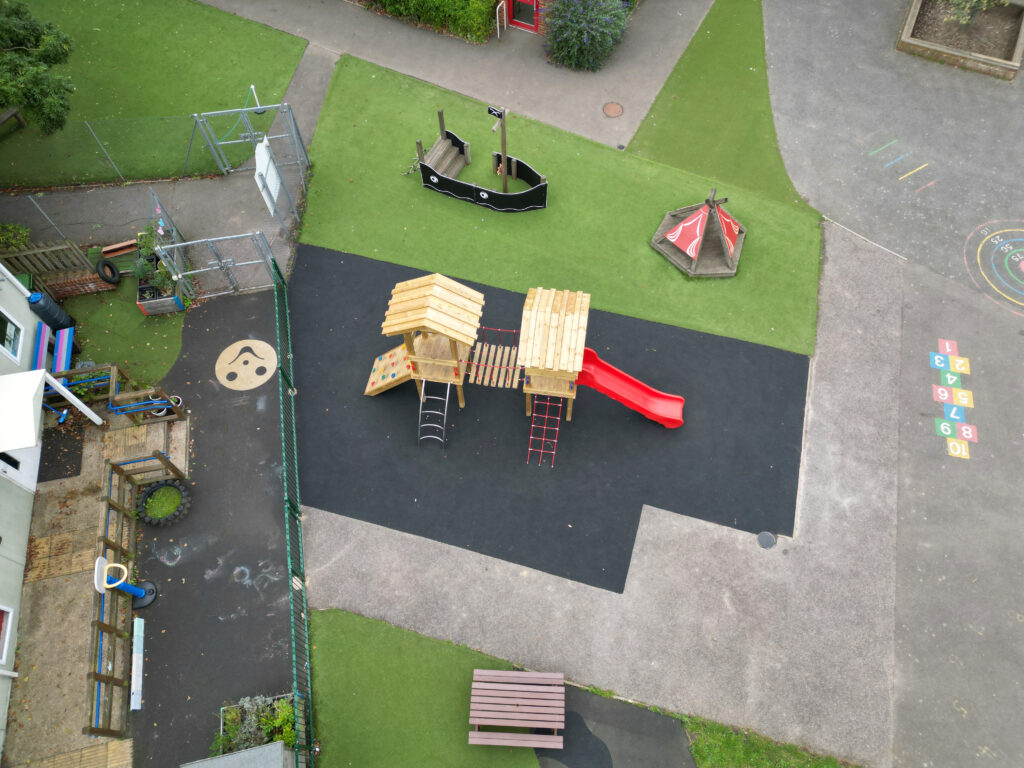

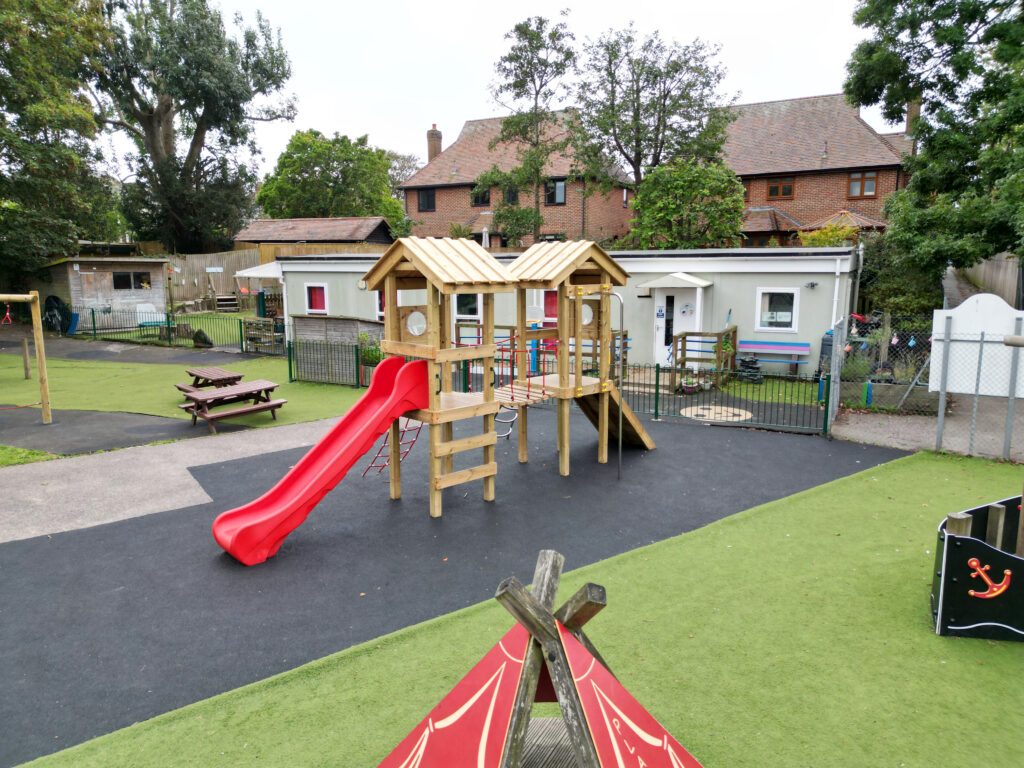
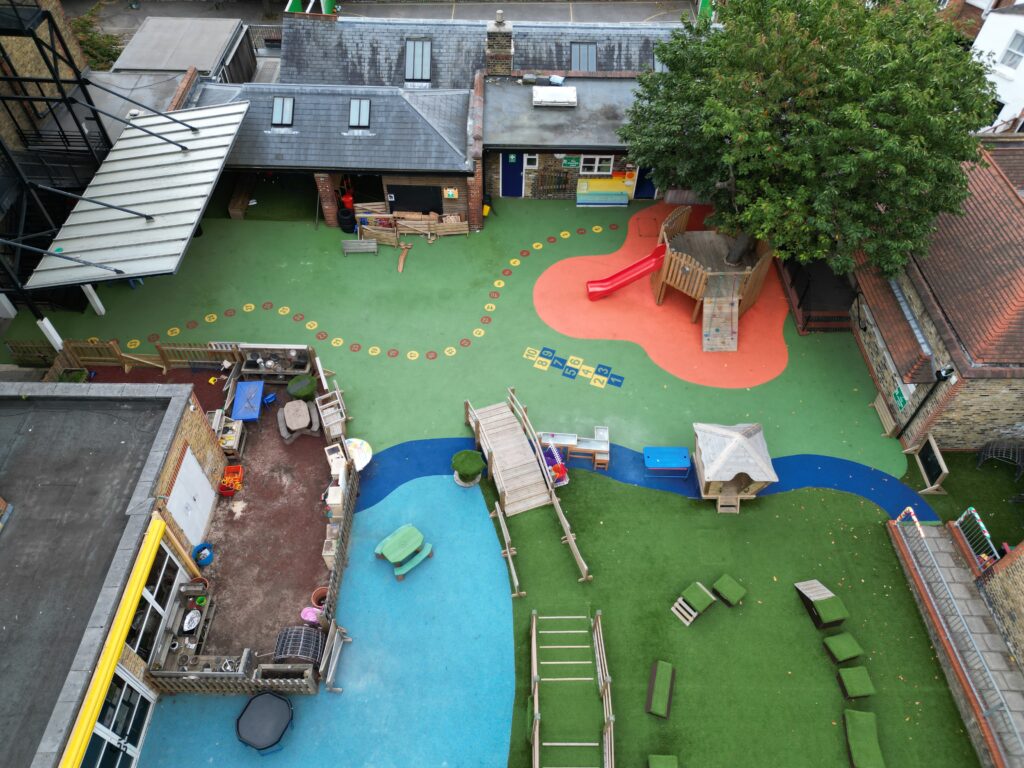






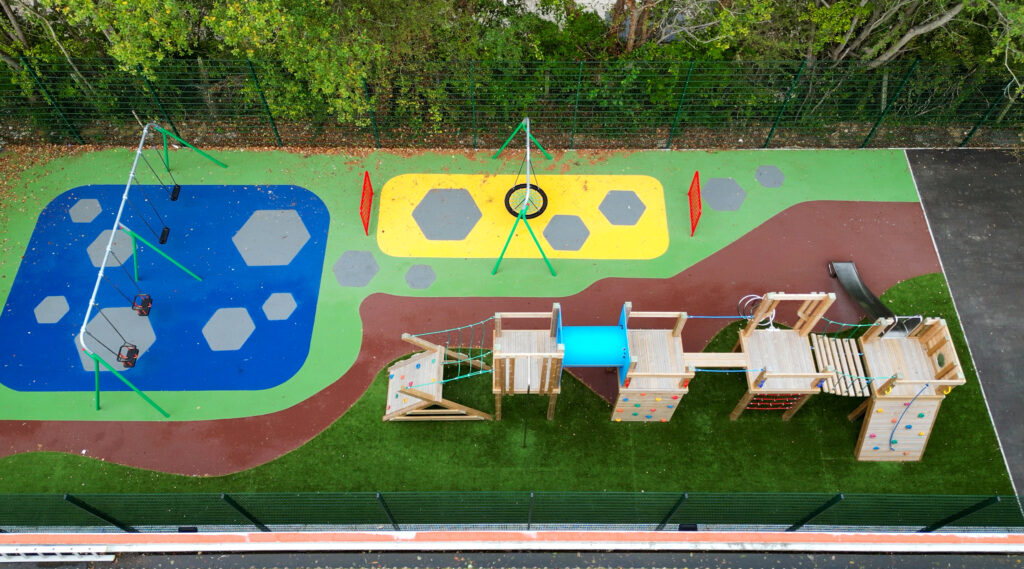










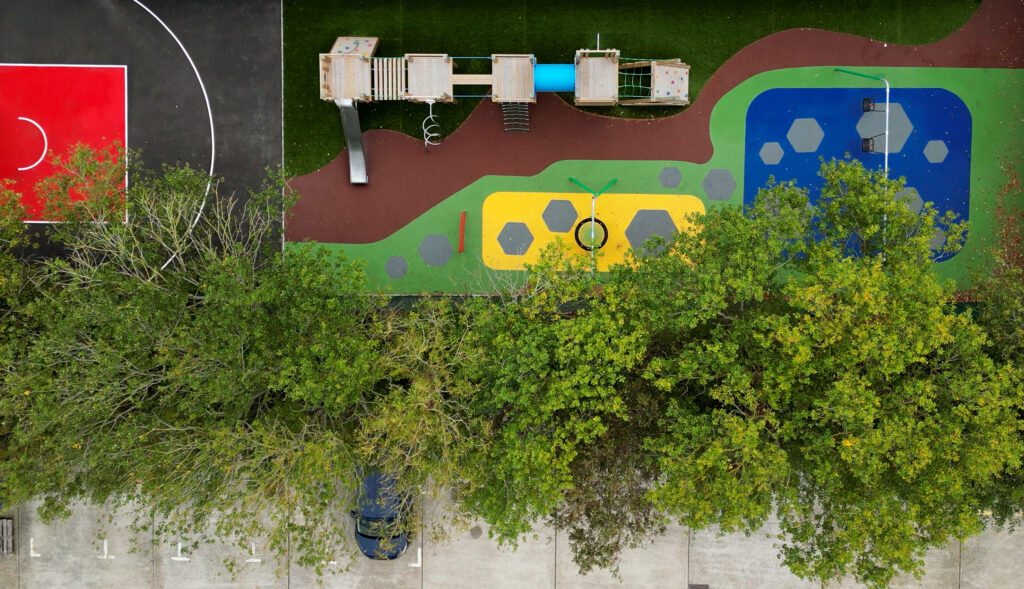









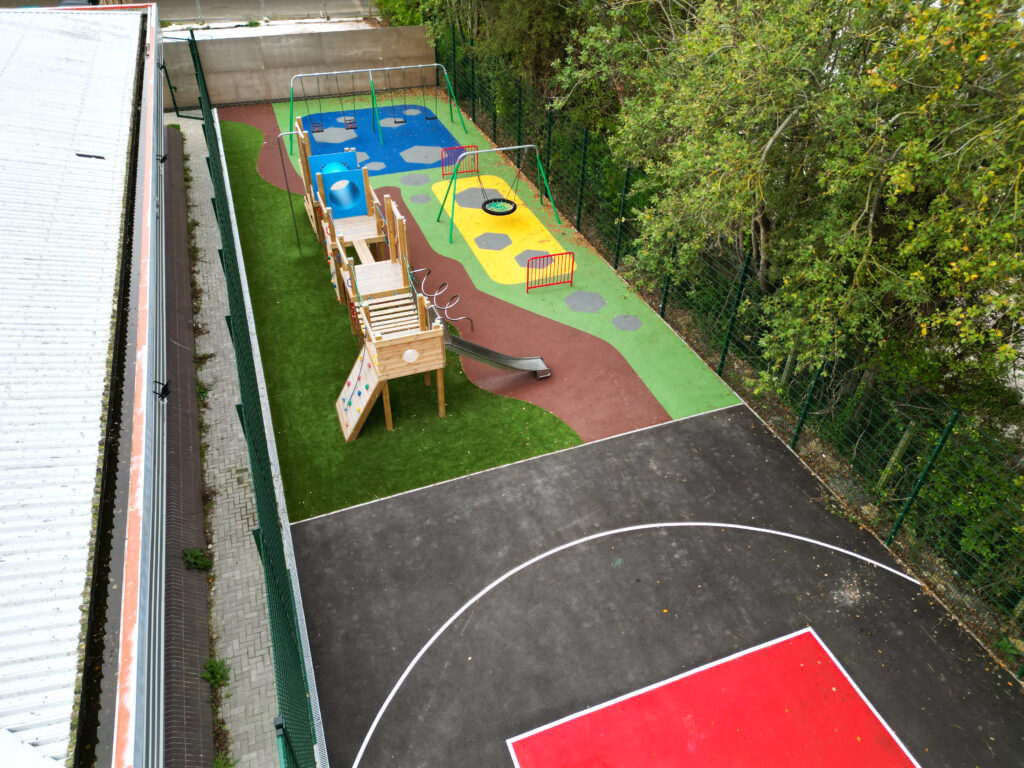



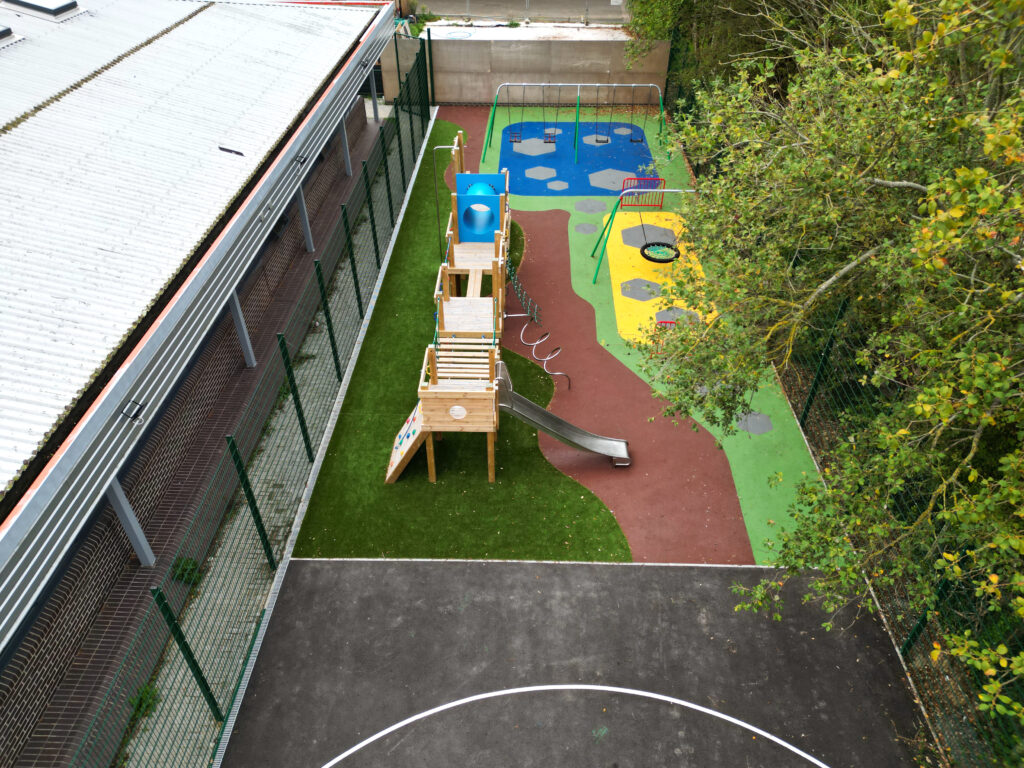







We Aim To Reply To All Enquiries With-in 24-Hours